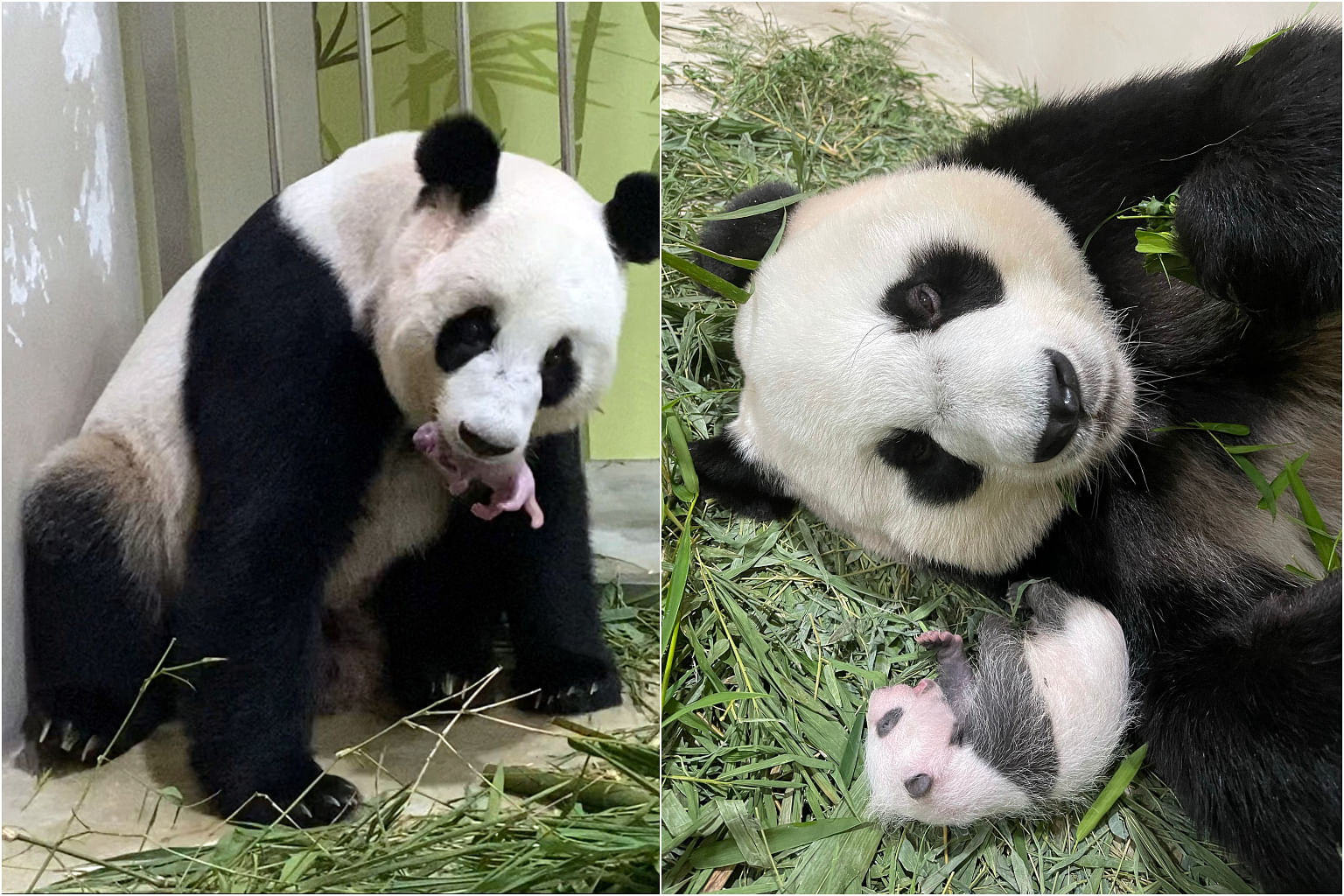It's a boy: Gender of Singapore's first giant panda cub revealed; submit your name suggestions by Sept 19


SINGAPORE - The first ever panda born in Singapore to giant pandas Kai Kai and Jia Jia is a healthy baby boy.
The cub was born on Aug 14 at River Safari after seven attempts by its parents to conceive.
The cub's gender was determined through a series of visual assessments performed by Wildlife Reserves Singapore (WRS)'s panda care team, WRS said on Friday (Sept 10).
The WRS team, led by animal care officer Ms Trisha Tay Ting Ni, subsequently confirmed the baby panda was male after consulting with a team of experts from the China Conservation and Research Centre for Giant Panda (CCRCGP).
The CCRCGP experts examined a series of photos and videos that were shared by the WRS panda care team and gave their feedback.
Dr Cheng Wen-Haur, deputy chief executive officer and chief life sciences officer at WRS, said the cub's mother, 12-year-old Jia Jia, has exceeded all expectations in caring for her cub.
Dr Cheng said: "As such, the panda care team has decided to allow this period of maternal care to continue for as long as possible for the duo to strengthen their bond.
"While supporting Jia Jia's care of the cub, we were able to determine the cub's gender through close visual observation and will only retrieve the cub for veterinary checks when the time is right."
The gender reveal was also part of the cub's father Kai Kai's 14th birthday celebrations on Friday. Kai Kai turns 14 on Sept 14.
The cub will be given a name before its 100-day milestone on Nov 21, and a judging panel chaired by Mr Tan Chuan-Jin, deputy chairman of Mandai Park Holdings, will oversee the process.
The name should be catchy and easy to remember, with positive meanings and attributes, as well as have relevance to Singapore heritage and culture. It must also be significant to the friendship between Singapore and China, WRS said.
The panel will also include representatives from academia, the Chinese Embassy in Singapore, relevant government agencies, and WRS.
Submissions for the name will close on Sept 20. The shortlisted names will be released for public voting.
Details on how the public can participate in naming the cub can be found on WRS's website.
WRS added that in the past month, the cub has started to develop prominent black markings around the eyes and ears, and on the body. Its fur is expected to be fully grown in the next few weeks and it will soon open its eyes.
Mother Jia Jia has also regained her appetite and has resumed eating, although slowly. She is now regularly seen munching on her favourite bamboo leaves and is also comfortable leaving her cub unattended for short intervals.

WRS added that as Jia Jia further settles into her mothering routine, her carers will gradually resume conditioning sessions via positive reinforcement training to prime her for cub retrieval to allow the care team to conduct checks on the cub.
Such training, which has been regularly conducted since 2015, includes getting Jia Jia to have her back towards the den bars, which allows her keepers to feel around her abdomen where the cub is usually cradled.
Another exercise involves Jia Jia fetching a toy, placing it by the den's bars, and allowing the keepers to retrieve it from her.
WRS said: "All this conditioning helps Jia Jia recognise cues and responses, while increasing her comfort level for the cub to be retrieved by her care team."
Since Jia Jia and Kai Kai arrived in Singapore in 2012, their seasonal mating attempts have been closely watched by the nation. Giant pandas are known to be notoriously difficult to breed in captivity.
WRS previously said it is in discussions with the Chinese authorities on extending Kai Kai and Jia Jia's stay beyond next year. This would allow the WRS team to plan for another breeding attempt for the pandas.
ALSO READ: Hello pandas: The little one and mum are doing well
This article was first published in The Straits Times. Permission required for reproduction.